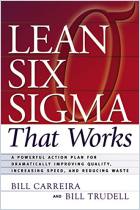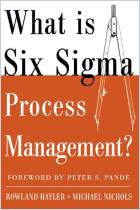加入 getAbstract 阅读摘要

加入 getAbstract 阅读摘要
Michael L. George
Lean Six Sigma
Combining Six Sigma Quality with Lean Speed
McGraw-Hill, 2002
看看什么内容?
Become faster, sharper, smarter and more profitable by making your company into a mean Lean Six Sigma machine.
Recommendation
Six Sigma devotees may dispute the need to add anything to Six Sigma, but a shot of Lean thinking provides a production boost. Consultant Michael L. George contends that Six Sigma reduces product quality variation but does nothing to improve delivery time. That may not be strictly true. However, the author’s analysis and presentation of the Lean Six Sigma approach is lucid and straightforward. The explanation of Six Sigma alone is much clearer than some other texts on the subject and even some Six Sigma veterans may appreciate the refresher. George provides some compelling examples of companies that have successfully used the Lean Six Sigma approach. getAbstract recommends this book primarily to leaders and managers of firms that rely on factories and other production units. However, the author also supplies practical information that will be relevant to service providers and to every company that cares about customer service and efficient production.
Summary
About the Author
Michael L. George is founder and CEO of The George Group, the biggest Lean Six Sigma consultancy in the United States.























Comment on this summary